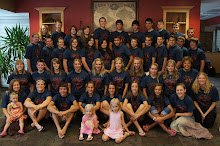Enticing Images
The movie Fireproof (Sony Pictures Home Entertainment, 2008) told
the story of a marriage falling apart. Caleb, the husband, had developed a problem with Internet pornography, and that became a part of their marriage problem. The story didn’t really begin to change until Caleb, in exasperation, smashed his computer with a baseball bat.
The flirtation with pornography begins for many when they are teenagers. For some it becomes a lifelong struggle.
Why do you think the lure of pornography is so great for teenagers and adults? ©ISTOCKPHOTO
The problem is not just Internet pornography. Many movies are full of images designed to stimulate sexual arousal. Romance novels depict sexually specific scenes that could burn the corneas off your eyes. Television, magazines—the media is full of enticing images.
Read Ephesians 5:1-5. Paul said sexual immorality “should not even be heard of among you.”
Is it possible for a person to live in America without a hint of sexual immorality in their lives?
Determining what you view in the media may have a huge impact on your life. Don’t allow yourself to watch things you know are wrong. Turn off the computer, switch
the channel, choose a different book. Media will seek to entice you with sexual images. Set personal standards for what you will and will not watch.
My Prayer
Father, help me to guard my eyes from things that
Wild Ideas
When you were little, did you ever race around the house like Superman or Wonder Woman, acting out things you had seen on cartoons? Children are often influenced by things they see on television.
Can you think of ways your ideas today have been influenced by media?
As you get older the influence of media gets more subtle. You may have seen Thor (Paramount, 2011) , but you probably didn’t buy a plastic hammer and chase your brother around the house. (OK, maybe you did.) Regardless, media can play a role in shaping your attitude toward everything from politics to your identity.
Read Ephesians 5:6-10. Paul warned us to stay away from ideas that distract from a walk with Christ.
What examples of “empty arguments” can you think of?
How can a person know an argument is “empty”?
Christians have to be careful about the way we consume media. We should not passively accept whatever is offered. We have to question what we see: What is this movie trying to say? Is this book trying to change my attitude about something? How does this message square with the truth of God? Carefully evaluate the messages you hear and weigh their truth claims against the truth of God.
Day 3
Wasted Time
Have you ever been playing a video game and totally lost track of time? Do you know what it’s like to waste a weekend watching television? The media can give us a lot of great things, but they can also rob us of one thing we can never get
back: TIME!
Read Ephesians 5:15-17. What does it mean to make the most of the time you have?
How do you determine what God’s will is for you? How does God’s will affect the way you use your time?
A healthy life includes times of
rest and times of work. Both are important. Relationships with family and friends have great value. God gave you gifts and abilities to be used to make a difference for other people; using those gifts is important. Playing video games,
chatting on Facebook, and watching “The Amazing Race” on television may have some value, but many
in our world have such a media addiction that their lives get unbalanced.
Evaluate your media usage. Are you using media in ways that help your life? Or has media become too much of a negative influence?
My Prayer
Lord Jesus, my time is Yours. Help me to use it in ways that benefit Your kingdom.



